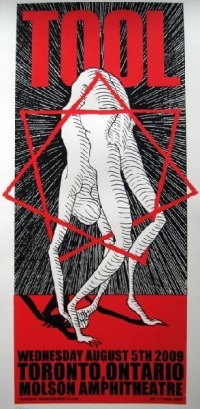
Какова роль ВПК (военно-промышленный комплекс) в экономике России?
 0
0
 0
0
Ответы на вопрос
 Внимание! Ответы на вопросы дают живые люди. Они могут содержать ошибочную информацию, заблуждения, а также ответы могут быть сгенерированы нейросетями. Будьте внимательны. Если вы уверены, что ответ неверный, нажмите кнопку "Пожаловаться" под ответом.
Внимание! Ответы на вопросы дают живые люди. Они могут содержать ошибочную информацию, заблуждения, а также ответы могут быть сгенерированы нейросетями. Будьте внимательны. Если вы уверены, что ответ неверный, нажмите кнопку "Пожаловаться" под ответом.

Военно-Промышленный Комплекс (ВПК) – один из важнейших функциональных комплексов России. Его главные особенности:
1. Способствует научно-техническому прогрессу страны;
2. Обеспечивает ее национальную безопасность;
3. Дает работу более чем миллиону человек;
4. Дает прибавку к ВВП;
5. Является одной из главных экспортных статей России.
 0
0
 0
0

Role of the Military-Industrial Complex (MIC) in the Russian Economy
The Military-Industrial Complex (MIC), or Военно-промышленный комплекс (ВПК) in Russian, plays a significant role in the economy of Russia. The MIC refers to the network of defense-related industries, research institutions, and government agencies involved in the production of military equipment and technology.
1. Economic Contribution: The MIC contributes to the Russian economy in several ways:
- Employment: The defense industry provides employment opportunities for a significant number of people in Russia. It employs engineers, scientists, technicians, and skilled workers, contributing to job creation and income generation. - Industrial Output: The defense sector contributes to the overall industrial output of Russia. It produces a wide range of military equipment, including aircraft, missiles, naval vessels, armored vehicles, and firearms. This production contributes to the country's manufacturing sector and GDP. - Technological Development: The defense industry drives technological development in Russia. It invests in research and development (R&D) to create advanced military technologies, which often have civilian applications as well. This R&D investment contributes to innovation and the development of high-tech industries. - Export Revenue: The defense industry is a significant exporter for Russia. It sells military equipment and technology to other countries, generating export revenue and contributing to the country's balance of trade. - Infrastructure Development: The defense industry's activities often require the development of specialized infrastructure, such as manufacturing facilities, research centers, and testing ranges. This infrastructure development contributes to the overall economic development of the regions where these facilities are located.
2. Government Support: The Russian government provides support to the MIC to ensure its functioning and development:
- State Orders: The government places significant orders for military equipment and technology, providing a stable demand for the defense industry's products. These state orders help sustain the industry and provide a reliable source of revenue. - Financial Support: The government provides financial support to the defense industry through various mechanisms, including subsidies, grants, and loans. This support helps fund R&D activities, modernization efforts, and infrastructure development. - Regulatory Framework: The government establishes regulations and policies to govern the defense industry. These regulations ensure compliance with national security requirements, export controls, and quality standards.
3. Impact on Other Sectors: The MIC's activities have spillover effects on other sectors of the Russian economy:
- Technology Transfer: The defense industry's R&D efforts often lead to technological advancements that can be transferred to other sectors, such as aerospace, electronics, and telecommunications. This technology transfer contributes to the development of civilian industries. - Skills and Expertise: The defense industry's demand for highly skilled workers fosters the development of a skilled labor force. The expertise gained in the defense sector can be utilized in other industries, enhancing overall human capital. - Supply Chain: The defense industry relies on a network of suppliers and subcontractors, creating opportunities for businesses in related sectors. These suppliers provide materials, components, and services, contributing to the growth of the broader industrial ecosystem.
In conclusion, the Military-Industrial Complex (MIC) plays a crucial role in the Russian economy. It contributes to employment, industrial output, technological development, export revenue, and infrastructure development. The government provides support to the MIC through state orders, financial assistance, and regulatory frameworks. The MIC's activities also have spillover effects on other sectors, including technology transfer, skills development, and supply chain growth.
 0
0
 0
0
Топ вопросов за вчера в категории География
Последние заданные вопросы в категории География
-
Математика
-
Литература
-
Алгебра
-
Русский язык
-
Геометрия
-
Английский язык
-
Химия
-
Физика
-
Биология
-
Другие предметы
-
История
-
Обществознание
-
Окружающий мир
-
География
-
Українська мова
-
Информатика
-
Українська література
-
Қазақ тiлi
-
Экономика
-
Музыка
-
Право
-
Беларуская мова
-
Французский язык
-
Немецкий язык
-
МХК
-
ОБЖ
-
Психология
-
Физкультура и спорт
-
Астрономия
-
Кыргыз тили
-
Оʻzbek tili





















